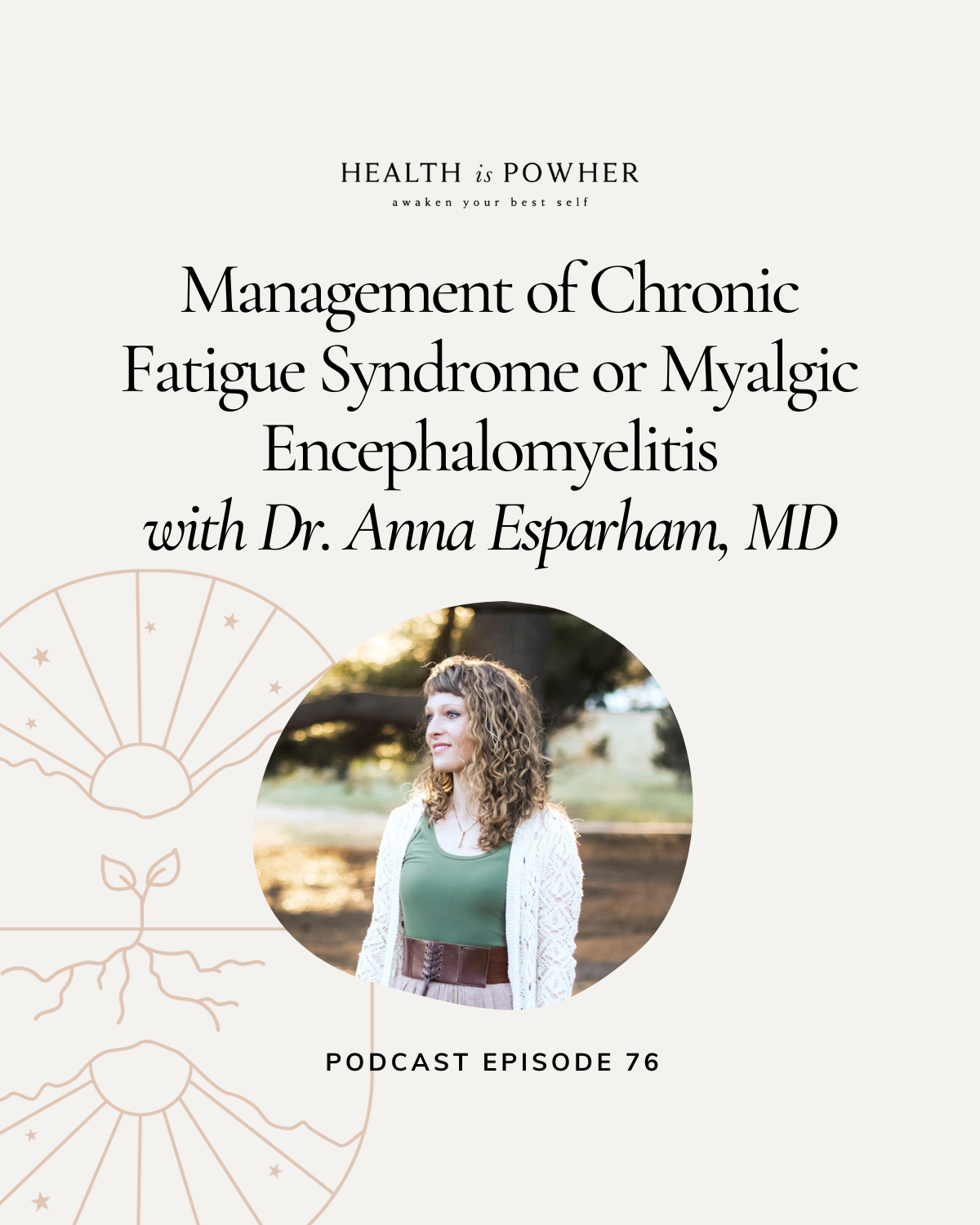Management of Chronic Fatigue Syndrome or Myalgic Encephalomyelitis
Health Is PowHer Podcast Episode 76 with Dr. Anna Esparham, MD
chronic fatigue syndrome treatment therapies medications
Today’s episode is all about chronic fatigue and chronic fatigue syndrome or myalgic encephalomyelitis and similar symptoms.
Diagnosed as having persistent or relapsing fatigue lasting six or more consecutive months. The fatigue is generally not alleviated by rest, and there can be brain fog that limits functioning, sore throat or tender lymph nodes, muscle pain or generalized pain, joint pain, headaches, dysautonomia symptoms, food sensitivities or sensitivities to medications/chemicals, unrefreshing sleep and malaise/fatigue/pain after exercise for more than 24 hrs.
There’s a great review paper that might be available for open access to the public by Cortes Rivera M et al. Diagnostics 2019 to check out.
How does chronic fatigue even begin to manifest in our bodies?
Chronic fatigue syndrome (CFS) and/or Myalgic Encephalomyelitis (ME) typically known as CFS/ME often has been linked to Epstein-Barr Virus infection (EBV). Life stressors, trauma have occurred in patients with CFS/ME. There is notable immune disruption, inflammation, autoimmunity, neuropathic pain, endocrine/hormone changes, and neurotransmitter dysfunction (especially serotonin and acetylcholine).
Management and Treatment Options for Chronic Fatigue Syndrome:
One systematic review by Castro-Marrero et al. Br J Pharmacol. 2017 looked at the benefit of several medications, supplements, and therapies. Not many therapies were found to be a solid treatment, but there was some improvement in certain symptoms with rintatolimod (interferon modulator), valgancicylovir (antiviral), acetyl l-carnitine (a dietary supplement), certain antidepressants, and intravenous immunoglobulin (IVIG).
There was one report that low-dose hydrocortisone (5-10 mg qam) helped fatigue but may cause connective tissue damage and adrenal suppression. Also, once hydrocortisone is stopped, symptoms return. In addition, if there is healthy adrenal function already, then adding more hydrocortisone can depress the immune system.
Graded exercise therapy remains one of the better treatments studied.
Nutritional supplements in the setting of nutritional deficiency should not be dismissed in the setting of chronic fatigue syndrome.
Recently, a study by Castro-Marrero J et al. Antioxidants 2021 found that melatonin plus zinc may actually reduce fatigue and improve quality of life.
In the European Consensus paper for people living with CFS/ME, it is recommended that active relaxation therapies, lifestyle changes, dietary changes including eating an anti-inflammatory diet with reduced process foods and increasing healthy fats, energy “pacing”, and occupational therapy.
The supplements that were mentioned trialing for fatigue or cognitive dysfunction include Vitamin D, iron (if iron deficient), acetyl l-carnitine, CoQ10/Ubiquinol, NADH, Vitamin B12, alpha-lipoic acid, magnesium, omega-3, D-ribose, B-vitamins, and Vitamin C.
One of the many reasons why there is speculation that the research hasn’t shown much benefit for finding a solution to CFS/ME is because it is such a diverse condition arising from a multitude of factors and causes.
That's it for now! I'm hoping we'll discover more down the road as more researchers reveal the cause of CFS/ME and the treatment!

